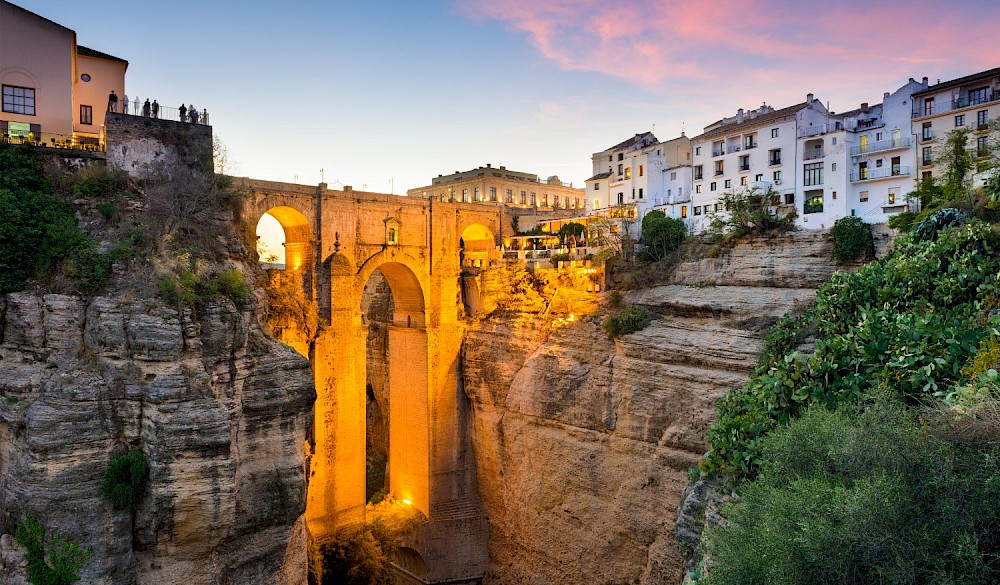Buying a new home in Costa del Sol is an exciting endeavor, but it involves several critical steps to ensure a smooth and successful process. This guide outlines each step to help you navigate the real estate market in this beautiful region.
1. Define Your Requirements
Step:
Start by clearly defining what you are looking for in a new home. Consider factors such as location, property type, budget, and specific features you desire.
Key Considerations:
-
Location: Areas such as Marbella, Estepona, Fuengirola, and Mijas each offer unique benefits. Marbella is known for its luxury properties and vibrant nightlife, Estepona for its traditional Spanish charm, Fuengirola for its family-friendly atmosphere, and Mijas for its picturesque mountain views. For more additional detail about Marbella's neighborhoods and further explore Marbella as an option, you might want to read our guide on Marbella Neighborhood Guide for New Homebuyers.
-
Property Type: Decide whether you prefer villas, apartments, townhouses, or penthouses. Villas offer privacy and space, apartments are typically more affordable and easier to maintain, townhouses provide a balance between space and community living, and penthouses offer luxury with stunning views.
-
Budget: Establish a clear budget, including the purchase price, taxes, and fees. Factor in additional costs such as notary fees, registration fees, and legal expenses.
-
Features: Consider the number of bedrooms, amenities like swimming pools and gardens, and proximity to schools, services, and recreational areas.
Detailed Tips:
-
Research Neighborhoods: Visit different neighborhoods at various times of the day to get a feel for the area.
-
Future Needs: Think about your long-term needs, such as potential family growth or retirement plans.
2. Research the Market
Step:
Conduct thorough research on the current real estate market in Costa del Sol. Understand the trends, average prices, and the availability of properties in your chosen area.
Key Considerations:
-
Market Trends: Look at the latest developments and demand trends. Areas experiencing high demand might have higher prices but also offer better investment potential.
-
Property Values: Compare prices of similar properties in different areas to get a sense of market value. Websites like Idealista and Kyero can be useful.
-
Future Developments: Consider the impact of upcoming infrastructure projects, such as new roads, schools, or shopping centers, which can enhance property values.
Detailed Tips:
-
Consult Reports: Look at market reports from real estate agencies and local government to understand broader trends.
-
Visit Property Fairs: Attend local property fairs to meet developers and get firsthand information about new projects.
For more valuable insights about future property value changes, check our latest blog post here: Future Predictions for Costa del Sol’s New Home Market.
3. Engage a Real Estate Agent
Step:
Hire a reputable real estate agent who specializes in the Costa del Sol market. An experienced agent can provide valuable insights and help you find properties that meet your criteria.
Key Considerations:
-
Local Expertise: Choose an agent with extensive knowledge of the area and a good network of contacts.
-
Track Record: Look for agents with a history of successful transactions and satisfied clients.
-
Communication: Ensure the agent understands your needs and preferences and can communicate effectively in your preferred language.
Detailed Tips:
-
Interview Multiple Agents: Talk to several agents before making a decision to find one that best understands your needs.
-
Check References: Ask for references or testimonials from previous clients. For more detailed tips on selecting the right real esate agent, you might want to check our guide here: How to Choose the Right Real Estate Agent.
4. View Properties
Step:
Schedule viewings of shortlisted properties. Take your time to assess each property’s condition, layout, and suitability.
Key Considerations:
-
Physical Condition: Check for any signs of damage or required repairs. Consider getting a professional inspection if necessary.
-
Neighborhood: Evaluate the surroundings, including safety, noise levels, and available amenities.
-
Potential: Consider the property's potential for appreciation and improvements. Look at factors such as natural light, layout, and potential for renovation.
Detailed Tips:
-
Visit at Different Times: View the property at different times of the day to assess light and noise levels.
-
Talk to Neighbors: Speak with neighbors to get a sense of the community and any potential issues.
5. Legal and Financial Due Diligence
Step:
Before making an offer, conduct thorough legal and financial due diligence. This includes verifying the property’s legal status and ensuring there are no outstanding debts or liens.
Key Considerations:
-
Legal Status: Ensure the property has all necessary licenses and permissions. Verify the property boundaries and that it complies with local zoning laws.
-
Debt Check: Verify that there are no unpaid mortgages, taxes, or community fees associated with the property.
-
Financial Planning: Secure your financing options, whether through a mortgage or other means. Obtain a pre-approval letter from your bank if necessary.
Detailed Tips:
-
Hire a Lawyer: Engage a local lawyer who specializes in real estate to help with due diligence.
-
Check Utility Bills: Ensure that all utility bills are up-to-date and there are no outstanding payments.
6. Make an Offer
Step:
Once you’ve found the right property, make a formal offer. Your real estate agent can assist with negotiations to ensure you get the best possible price.
Key Considerations:
-
Market Value: Base your offer on current market values and comparable sales in the area.
-
Negotiation: Be prepared to negotiate terms and conditions, including the price, closing date, and any contingencies.
-
Written Offer: Submit a written offer to the seller or their agent, outlining the proposed terms.
Detailed Tips:
-
Be Realistic: While it's important to negotiate, ensure your offer is realistic and competitive.
-
Include Contingencies: Include contingencies for financing, inspections, and any other necessary conditions.
7. Sign a Reservation Agreement
Step:
If your offer is accepted, sign a reservation agreement and pay a deposit to secure the property. This agreement outlines the basic terms of the purchase and reserves the property for you.
Key Considerations:
-
Deposit: Typically around 1-2% of the purchase price. Ensure the deposit is refundable under certain conditions.
-
Terms: Ensure all agreed terms are clearly stated in the agreement, including the timeline for the next steps.
Detailed Tips:
-
Understand the Agreement: Have your lawyer review the reservation agreement before signing.
-
Get a Receipt: Ensure you receive a receipt for the deposit paid.
8. Hire a Lawyer
Step:
Engage a qualified lawyer who specializes in Spanish real estate law to assist with the legal aspects of the purchase.
Key Considerations:
-
Due Diligence: The lawyer will conduct thorough due diligence on the property to ensure there are no legal issues.
-
Contract Review: Ensure the purchase contract protects your interests and includes all necessary terms.
-
Legal Compliance: Verify that all legal requirements are met and that the property is free of any encumbrances.
Detailed Tips:
-
Local Expertise: Choose a lawyer with experience in the Costa del Sol market and who speaks your language.
-
Transparent Fees: Ensure the lawyer provides a clear outline of their fees and services.
9. Sign the Purchase Contract
Step:
After due diligence is complete, sign the purchase contract (Contrato de Compraventa). This contract finalizes the terms of the sale and typically requires a payment of 10% of the purchase price.
Key Considerations:
-
Contract Terms: Review all terms and conditions carefully, including the payment schedule, closing date, and any contingencies.
-
Payment Schedule: Understand the payment schedule and amounts due at each stage.
Detailed Tips:
-
Review with Lawyer: Have your lawyer review the contract before signing.
-
Prepare Funds: Ensure you have the necessary funds available for the deposit and subsequent payments.
10. Complete the Purchase
Step:
The final step is the completion, where the remaining balance is paid, and ownership is transferred. This is done at a Notary's office, where the public deed of sale (Escritura Pública) is signed.
Key Considerations:
-
Final Payment: Arrange for the transfer of the final payment to the seller.
-
Notary Appointment: Schedule an appointment with a Notary to finalize the transaction.
-
Ownership Transfer: The Notary registers the property in your name with the Land Registry.
Detailed Tips:
-
Prepare Documents: Ensure all necessary documents are prepared and reviewed before the Notary appointment.
-
Understand Fees: Be aware of all fees associated with the Notary and registration process.
11. Post-Purchase Steps
Step:
After the purchase is complete, there are several post-purchase steps to ensure everything is in order.
Key Considerations:
-
Utilities: Transfer utilities (electricity, water, gas) to your name.
-
Community Fees: Set up payments for any community or maintenance fees.
-
Insurance: Arrange for home insurance to protect your investment.
Detailed Tips:
-
Register with Local Authorities: Ensure the property is registered with local authorities for tax purposes.
-
Home Improvements: Plan any necessary home improvements or renovations.
Conclusion
Buying a new home in Costa del Sol is a detailed process that requires careful planning and consideration. By following these steps, you can navigate the market with confidence and make an informed decision. With the help of experienced professionals and thorough due diligence, you can secure your dream home in this beautiful region. Whether you're looking for a vacation home, an investment property, or a permanent residence, understanding the steps involved will help you achieve a successful and satisfying purchase.






